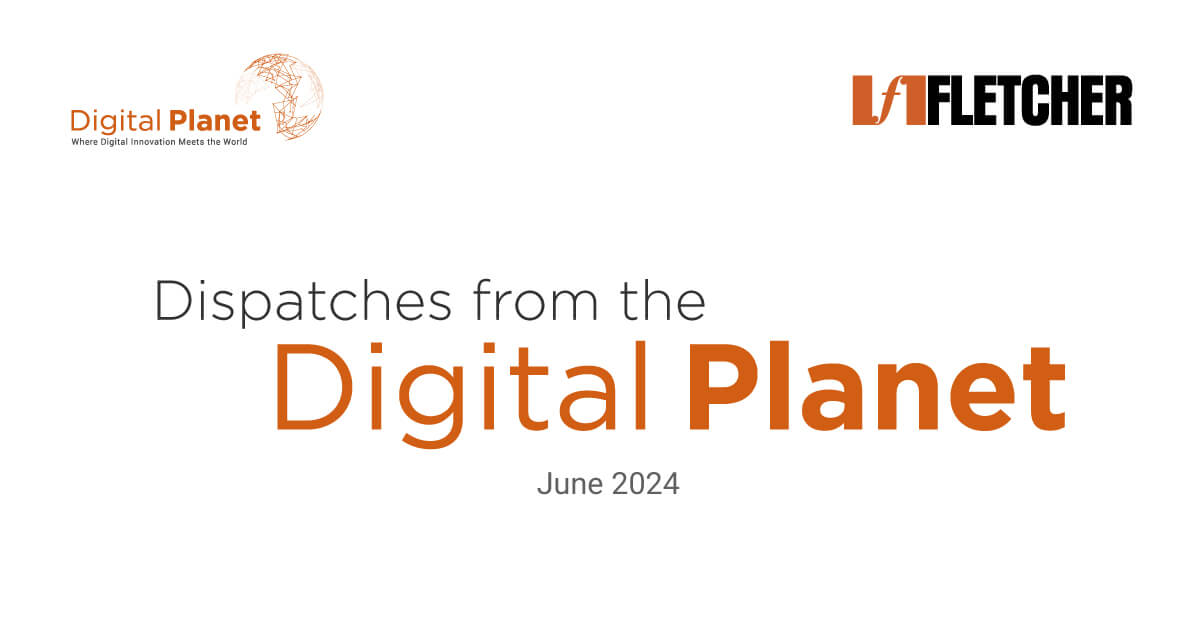
Dispatch from the Digital Planet: June 2024
Dispatch from the Digital Planet is a monthly bulletin that talks about new updates in digital innovation across the world and their impact.

Dispatch from the Digital Planet is a monthly bulletin that talks about new updates in digital innovation across the world and their impact.
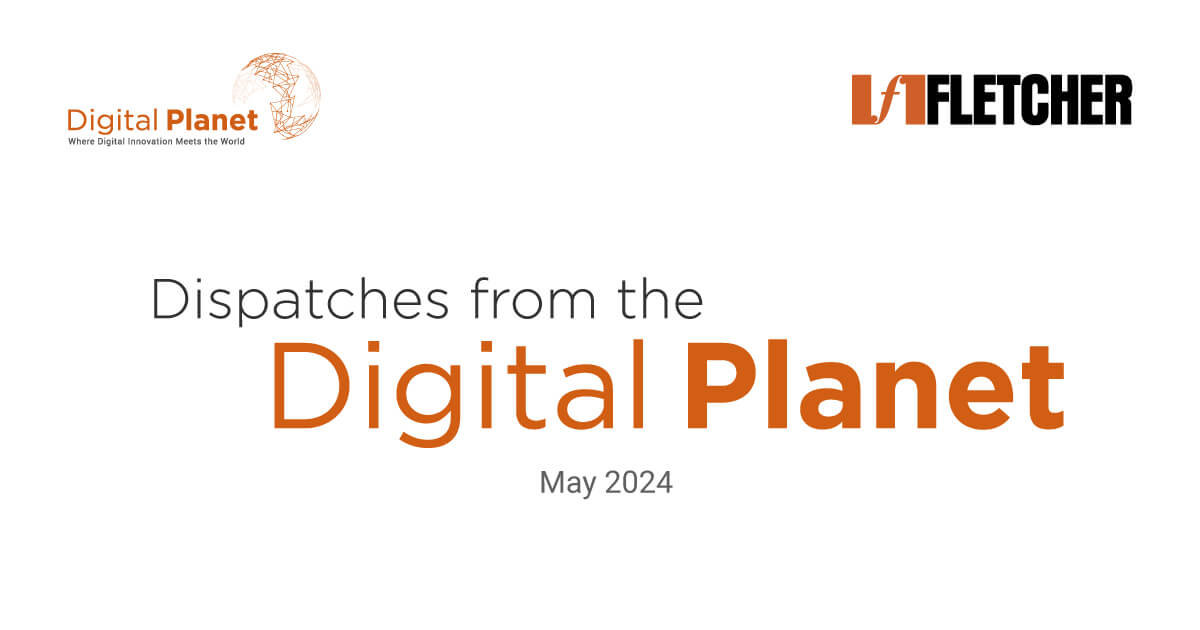
Dispatch from the Digital Planet is a monthly bulletin that talks about new updates in digital innovation across the world and their impact.
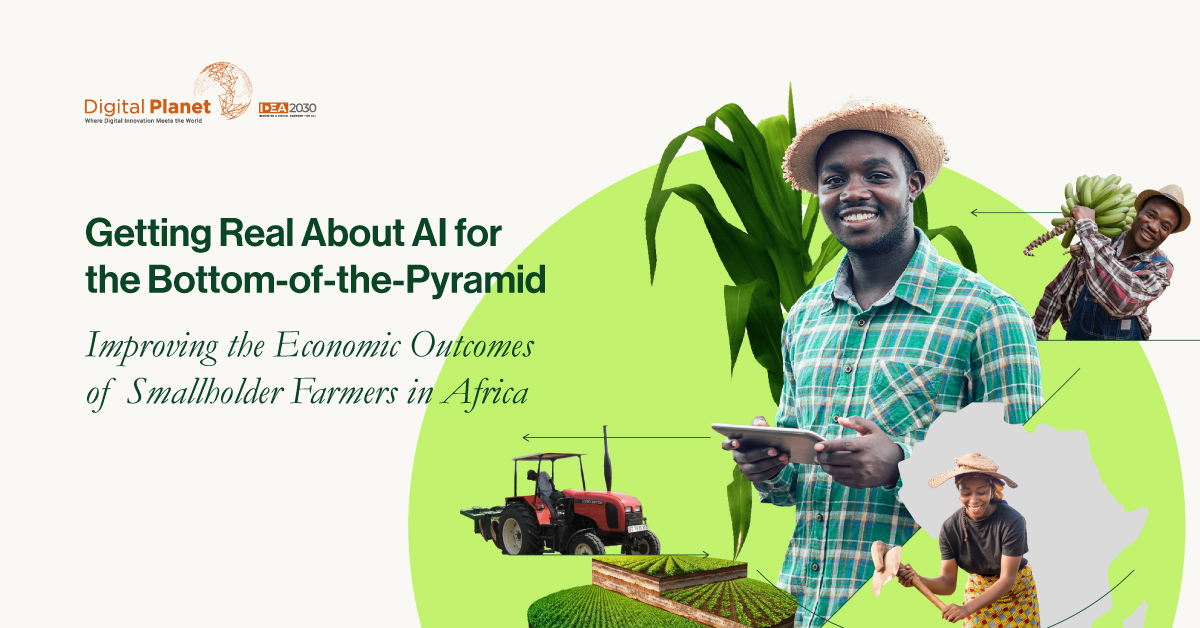
Sub-Saharan Africa’s agriculture, dominated by smallholders, struggles with low productivity. AI tools like Crop AI offer scalable solutions, potentially generating $6.1 billion in revenue, impacting millions of farmers, and advancing education, aligning with sustainable development goals.
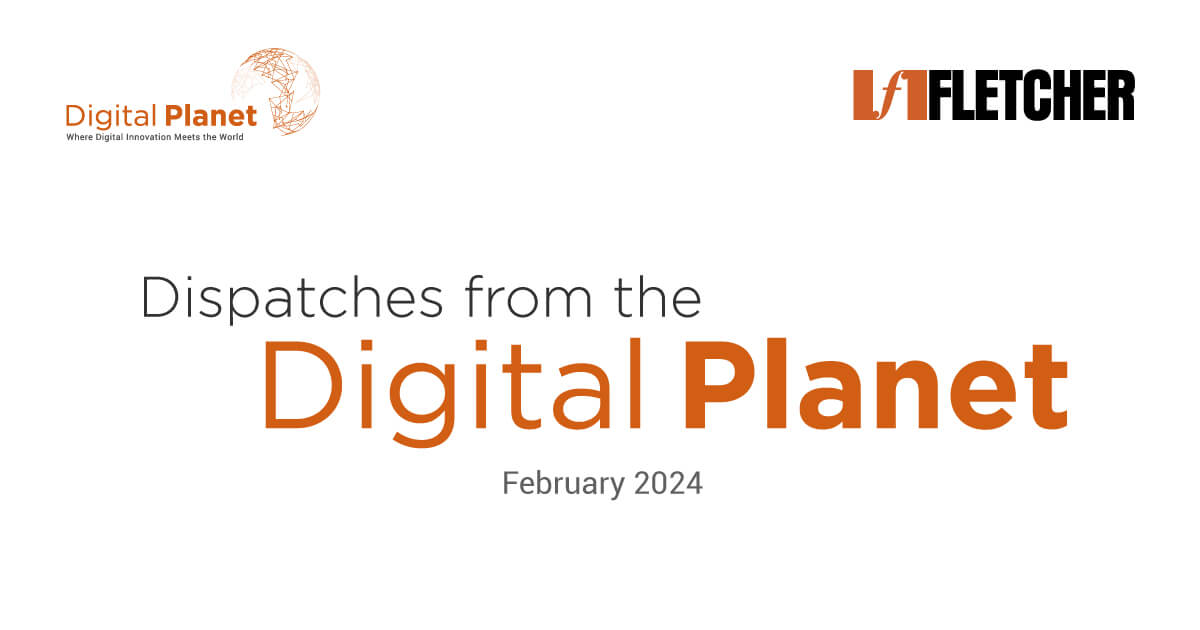
Dispatch from the Digital Planet is a monthly bulletin that talks about new updates in digital innovation across the world and their impact.
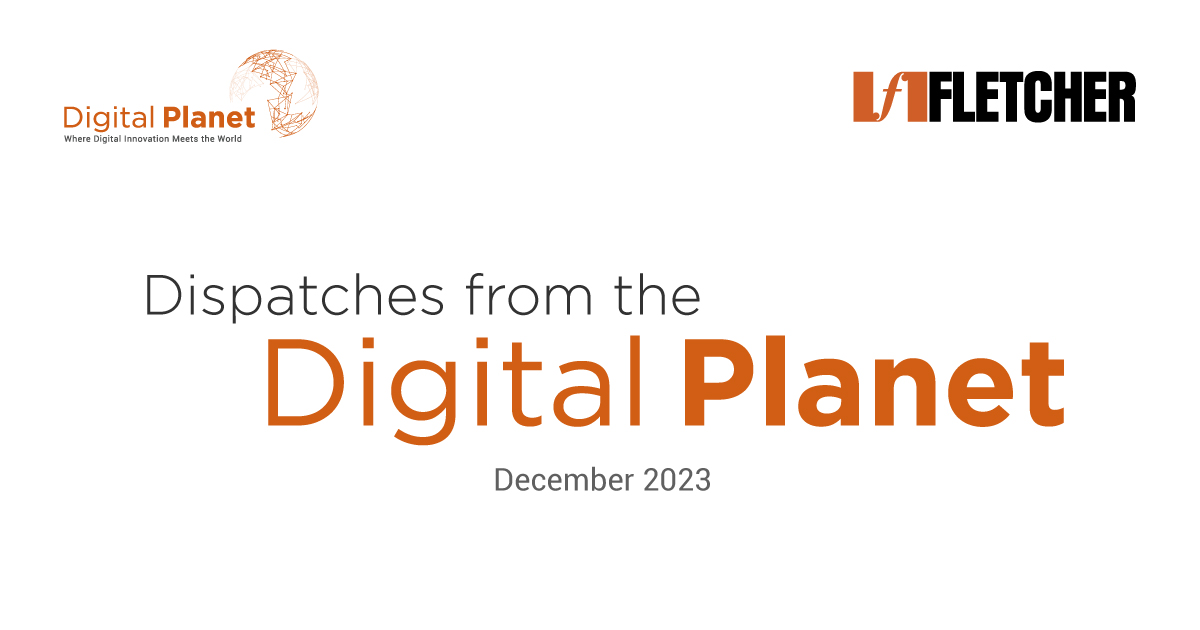
Dispatch from the Digital Planet is a monthly bulletin that talks about new updates in digital innovation across the world and their impact.
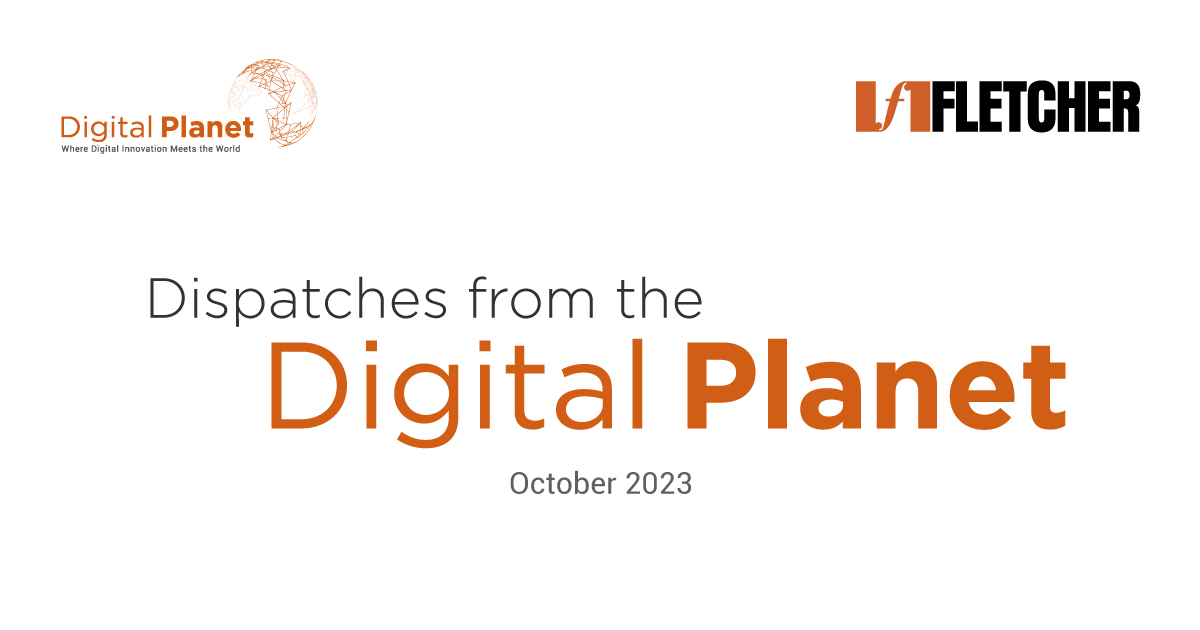
Dispatch from the Digital Planet is a monthly bulletin that talks about new updates in digital innovation across the world and their impact.

We studied the role of Systems Orchestrators in driving systemic changes on the ground to boost digital ecosystems and create jobs. We found that these orchestrators bring distinct advantages to transforming perceptions in the region.
In collaboration with Dalberg
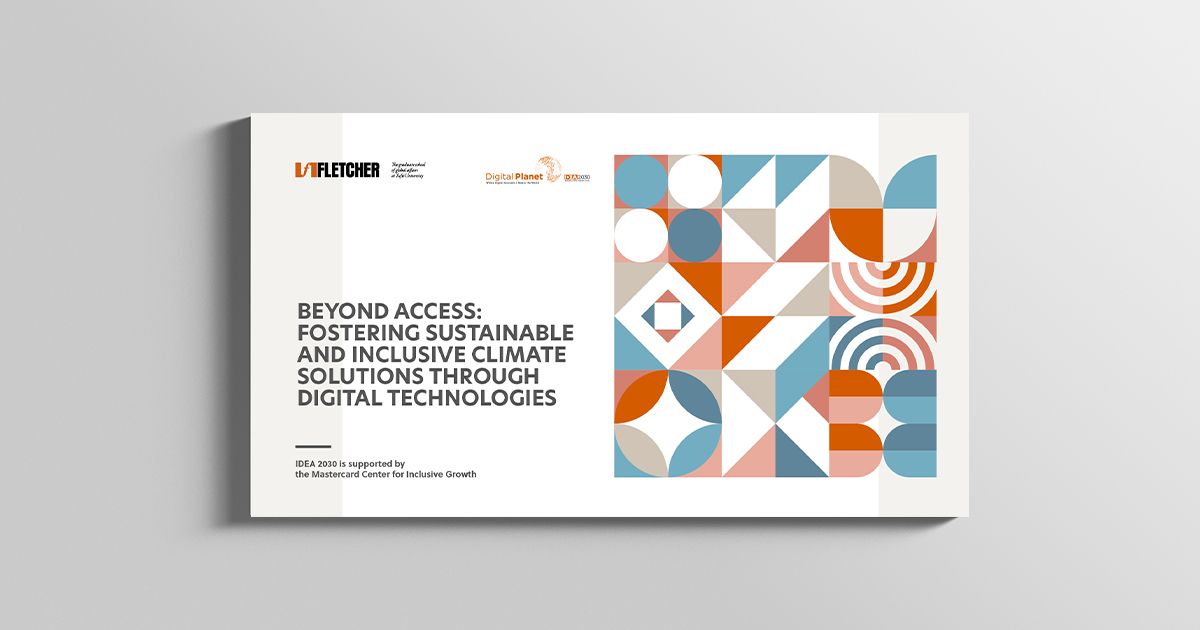
Innovative businesses are key to sustainable development. This research highlights three companies: Husk Power Systems (sustainable energy), Nexsis (solar panels for essential services), and ThredUp (secondhand e-commerce). Insights emphasize the value of pay-as-you-go models, digital tech’s role in sustainability, women’s empowerment via regenerative tech, the need for government support in renewables, and maintaining consumer demand.
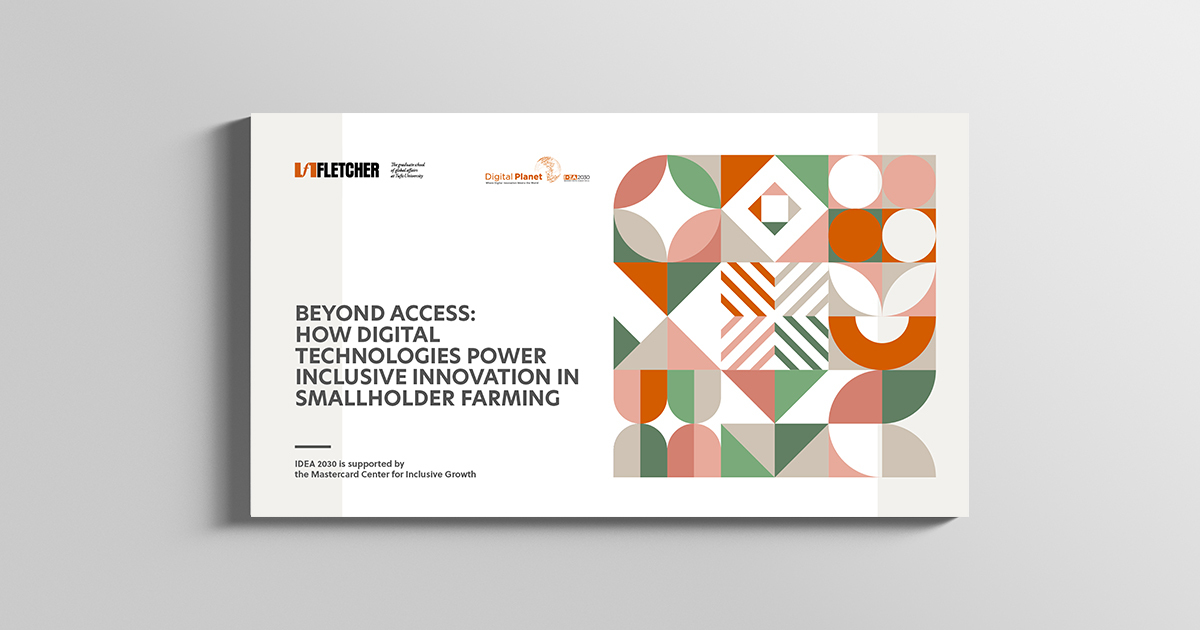
In this second edition of the case compendium, we cover three
enterprises working in the education technology (ed-tech)
and upskilling industry in three distinct emerging markets.
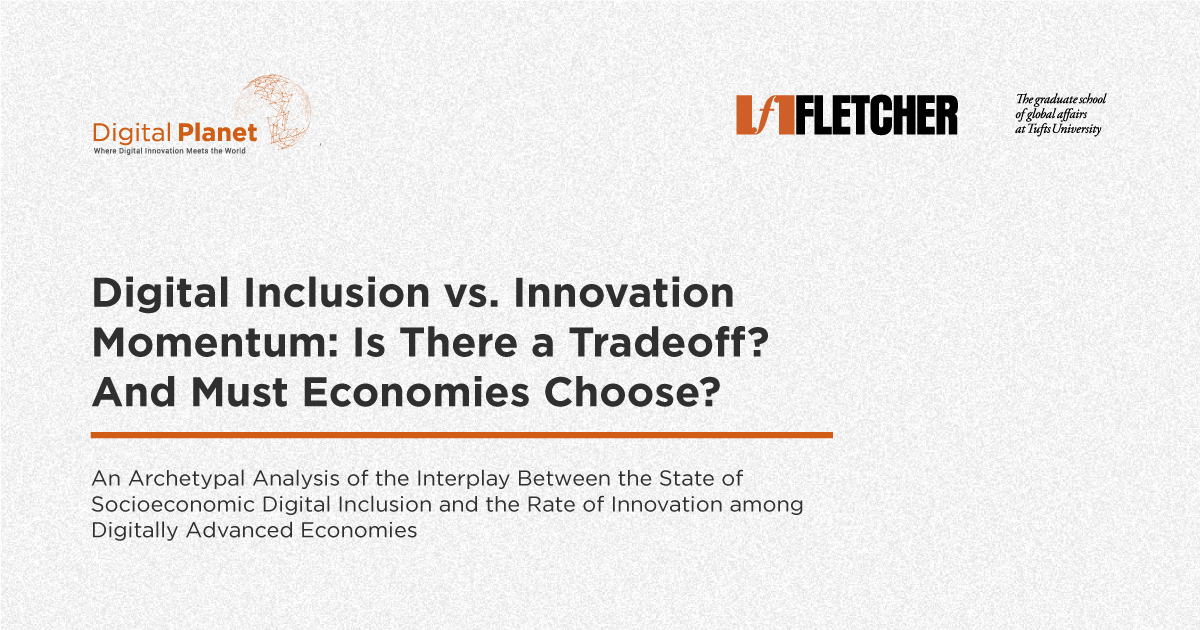
IDEA 2030’s report studies the link between digital inclusion and innovation. Key insight: As more join the digital economy, value creation focuses on affluent users, widening digital disparities. Policy interventions are needed for inclusive innovation.
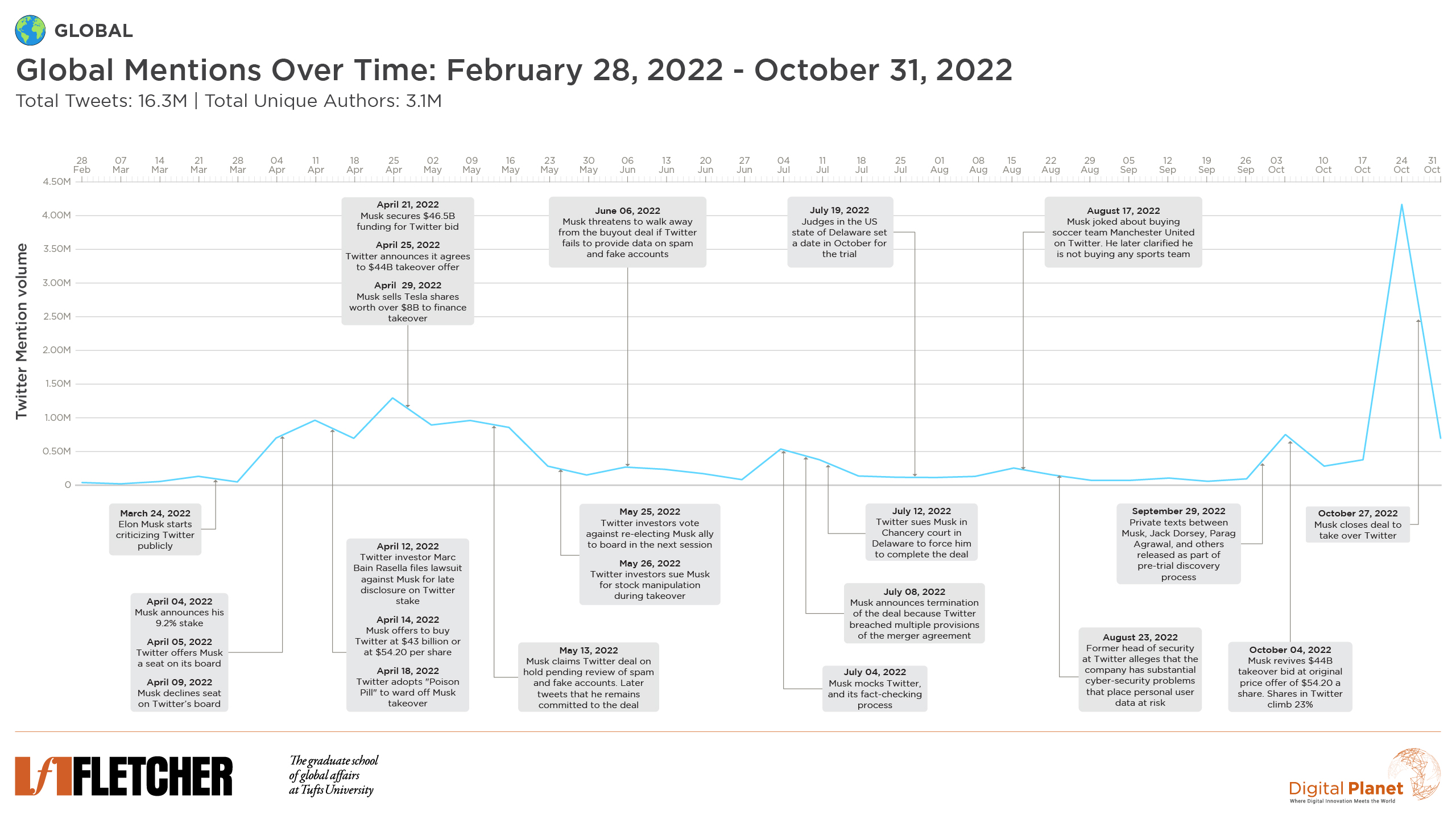
Examining 16.3M tweets (Feb-Oct ’22) from 5 nations on Elon Musk’s Twitter takeover, reactions shifted: positive to criticism, negativity to buyout plan, sadness on his control. Across countries, emotions followed Musk’s moves on Twitter.
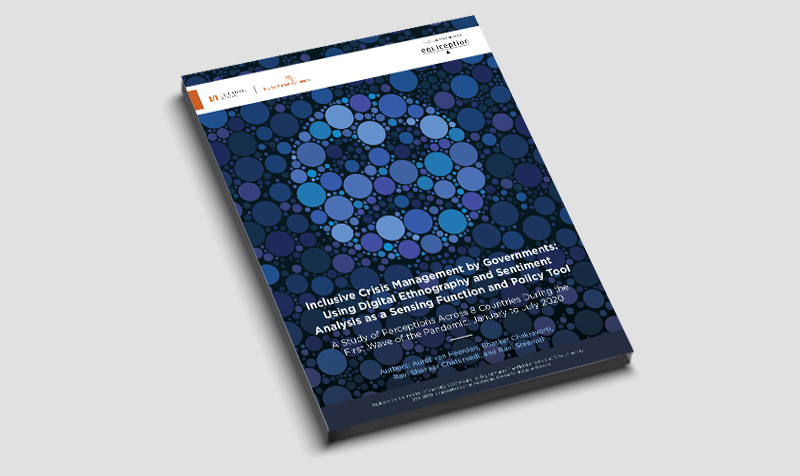
How can real-time social analytics provide a tool for inclusive policymaking? This report uses a dataset of over 873 million online interactions drawn from more than one hundred social and mainstream media channels to analyze public sentiment and emotion in response to the pandemic management of eight governments between January and July 2020.
In collaboration with Equiception

Inclusive businesses use digital tech to advance global sustainability, worth $12-15T yearly. Studies highlight the need for trust, low-tech solutions, and environmental focus.

The under-representation of women in high-paying STEM roles is a vexing issue that exposes a systemic inertia across the industry.
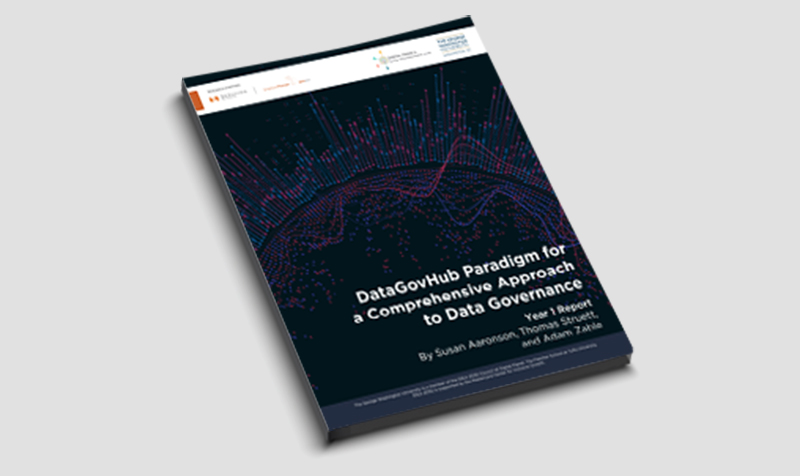
Policymakers face the challenge of governing diverse data effectively to build trust in a flexible, ethical, and accountable manner.

We present Progress to Digital Parity—an interactive scorecard that tracks the journey towards realizing the goal of a digital economy for everyone, everywhere.

The needs of the global sustainable development agenda are both broad and urgent, and innovation models are central to addressing them in a timely, efficient, and scalable manner, from promoting inclusive growth and ensuring the longevity of natural resources to addressing issues across the state of the human condition.
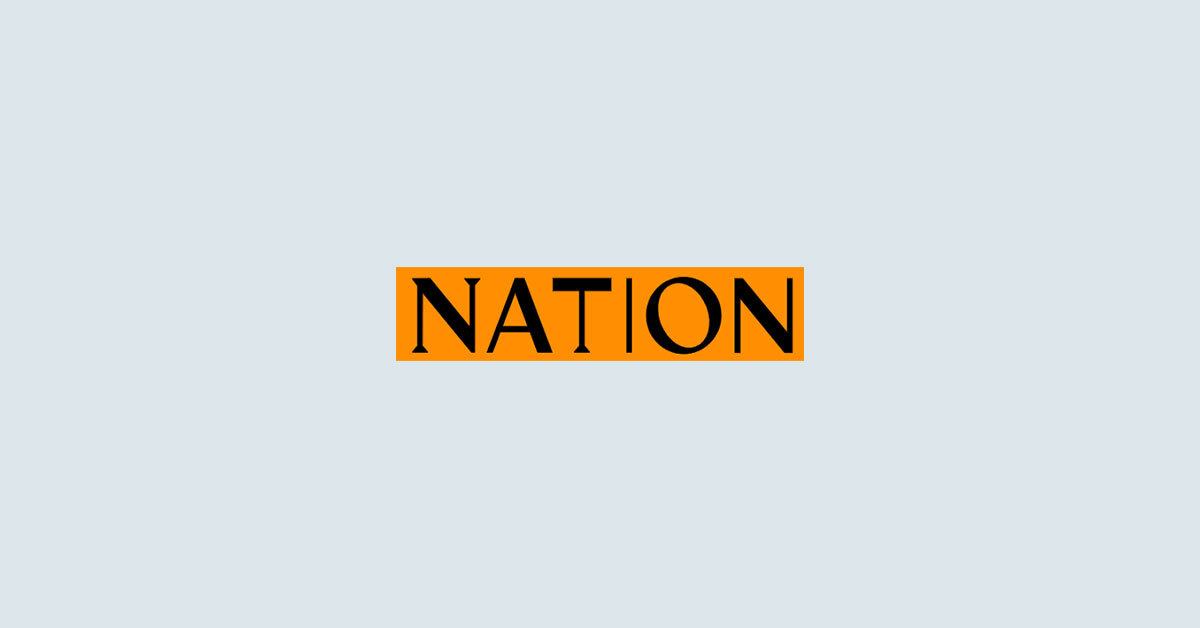
Data from Digital Planet’s Digital Intelligence Index (DII) is mentioned in this article about the lack of accessible broadband services in South Sudan.
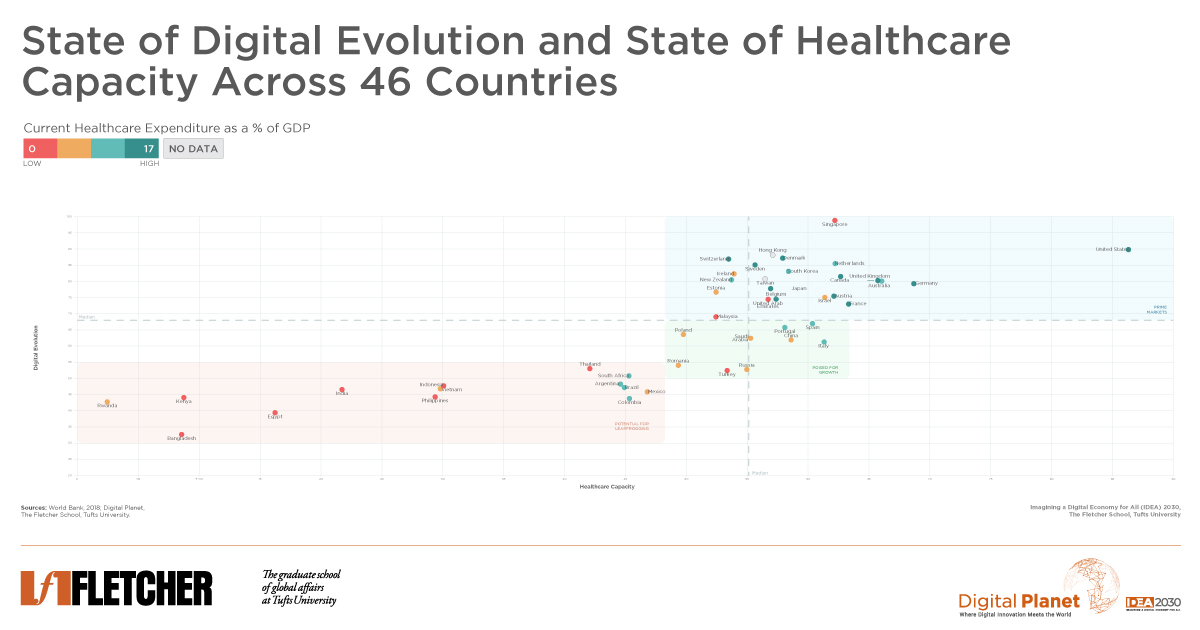
Global healthcare digitization varies wildly. Our study in 46 countries identifies virtualized healthcare opportunities, enabling lagging nations to leapfrog with digital tools for quality care.

An interactive research report that indexes trust in the digital economy and its evolution across 90 economies during the COVID-19 pandemic. This report features a collaborative research platform that provides data and evidence-driven actionable insights to leaders in government, business and technology.

Watch the video summary to learn more about the key takeaways from the African Leapfrog Index.

How emerging technologies and digital transformations can accelerate economic and societal growth in 6 African countries.
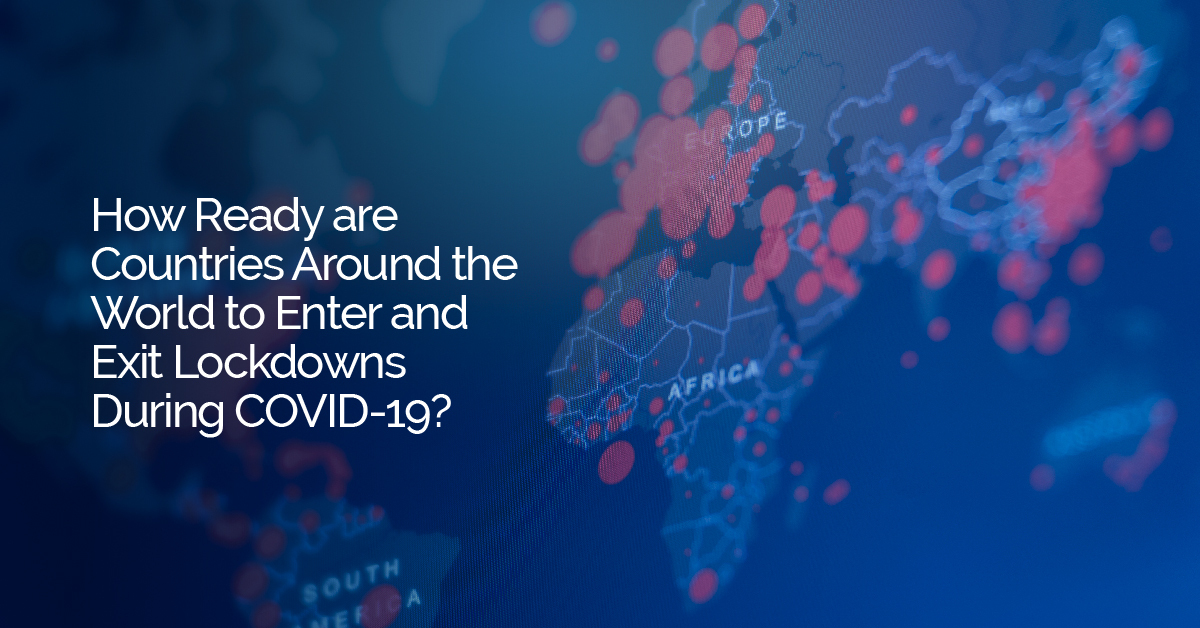
A Social Distance Readiness analysis of 42 countries measuring the robustness of their digital platforms; resilience of internet infrastructure to traffic surges; proliferation of digital payments options and percentage of workforce able to telecommute.
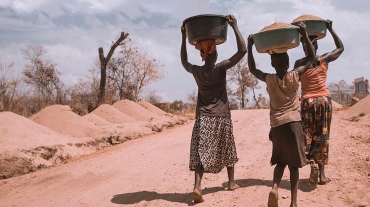
The African Leapfrog Index (ALI) is a novel framework that draws upon the primary levers that facilitate the translation of digital technologies into development and inclusive growth. The framework evaluates six African countries against a continent-wide “best-performance” benchmark to identify strengths to build upon and the opportunities to close gaps.

If the yardstick of effectiveness of any scorecard or ranking were tangible efforts, by those graded, to “improve bad ratings or maintain good ones,” few come even remotely close to the World Bank’s annual Doing Business survey.